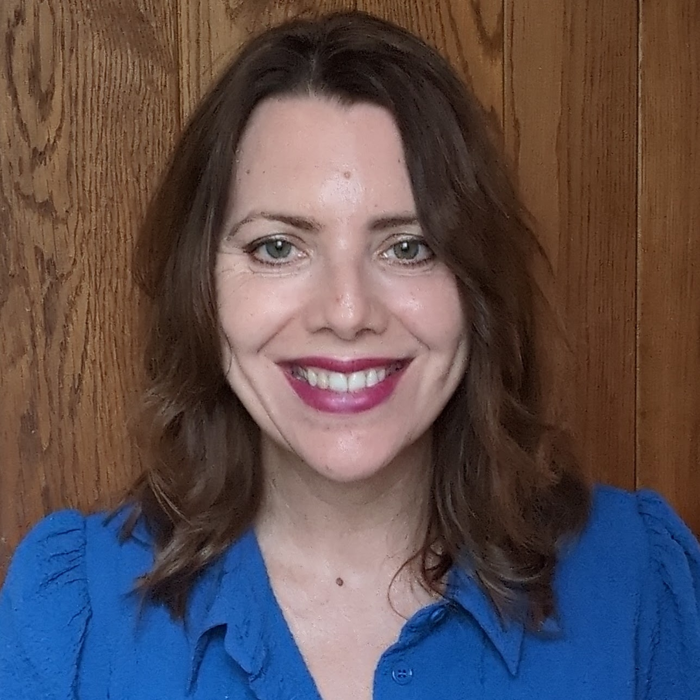Biofeedback in Vocal Pedagogy: Real-time success using mobile application technology
Thursday 15th April 2021, 5:00 PM - 7:00 PM (London Time)
Biofeedback in Vocal Pedagogy:
Real-time success using mobile application technology
Heidi Moss Erickson, B.A.Bio, B.Mus.Voice, M.Sci.
Advancements in mobile technology have revolutionized nearly every sector of our lives. Like a virtual fingerprint of our individual preferences, the seemingly endless array of mobile apps can define and enhance our interests. Music applications are a large part of this industry, and new generations of singers use their mobile devices to listen to songs, record their lessons, read, and annotate scores. Newer analysis and recording applications geared towards advanced musicians also include various forms of spectrograms for acoustic visualization.
However, spectrographic technology used by voice scientists and pedagogues has not fully crossed over into the mainstream population of students and teachers. One reason for the lack of pedagogical use is that acoustic computer software has been geared primarily towards research and academic-oriented pursuits. Acoustic software can be complicated to learn and tedious to analyze. In addition, the traditional teacher/student paradigm, proven successful for centuries, is a very effective way of teaching voice. Thus, there can be resistance to introduce new forms of pedagogic analysis in an already well-functioning studio.
However, the integration of technology for targeted purposes can aid both the student and the teacher in many important ways. In most instances it leads to increased accuracy in a shorter amount of time. It also allows the student to self-check particular directives in their own individual practice. Identifying beneficial areas of biofeedback is critical in determining where these tools can have maximum effectiveness.
‘How we practice efficiently and effectively’ is fast becoming one of the holy grails in our field. Visual biofeedback not only complements all of these processes, it also enhances both the speed and the output of targeted motor coordination.
The most critical element of introducing this technology is to identify relevant pedagogical questions that can easily be solved via visual biofeedback. Ideally, these approaches would supplement traditional methods (i.e. teacher/student; auditory/ kinesthetic feedback), but allow progress to happen faster and enhance understanding of processes.
This lecture will teach the science of biofeedback, how it relates to singing, and demonstrate the value of biofeedback for specific pedagogical aims.
Sample biofeedback mobile app readout:

Heidi Moss Erickson
Heidi Moss, is a Bay Area performer, educator, and scientist. Noted for her “rich and radiant soprano” (Edward Oriz, Sacramento Bee) has performed on national and international stages...
Sorry, this is an archived short course...
We have plenty of upcoming short courses coming soon. See details of some of them below or look at the full list of short courses.

Tuesday 13th January 2026
5:00 PM - 6:30 PM
Tuesday 20th January 2026
5:00 PM - 6:30 PM
Tuesday 27th January 2026
5:00 PM - 6:30 PM
Tuesday 3rd February 2026
5:00 PM - 6:30 PM
Tuesday 10th February 2026
5:00 PM - 6:30 PM
(London Time)
Introduction to Postgraduate Academic Skills - Join Live!

Debbie Winter
Are you ready to elevate your academic journey? Hosted by our very own Debbie Winter, join our comprehensive Introduction to Academic Skills course, designed to equip you with essential tools and strategies for success in higher education. Perfect for bridging the gap between undergraduate and postgraduate study, this course offers a pathway to our full MA for students without an existing degree. We offer both live, interactive sessions and standalone, pre-recorded content.

Thursday 15th January 2026
5:00 PM - 7:00 PM
Thursday 22nd January 2026
5:00 PM - 7:00 PM
Thursday 29th January 2026
5:00 PM - 7:00 PM
Thursday 5th February 2026
5:00 PM - 7:00 PM
Thursday 12th February 2026
5:00 PM - 7:00 PM
(London Time)
Trauma-Sensitive Voice Professional Certificate with Dr Elisa Monti

Dr Elisa Monti
Updated for 2026, this five-part certificate course is designed to help participants learn the theory and practice of trauma-sensitive approaches. The concepts and activities included are tailored to meet the needs of voice specialists who want to acquire more specific tools to navigate the space with their students and colleagues.

Monday 9th February 2026
5:00 PM - 7:00 PM
(London Time)
Certificate in Applied Voice Pedagogy with Adam Roberts

Adam Roberts
Spring Immersive - live and interactive learning! This 12-week online programme is designed for voice professionals committed to deepening applied voice pedagogy skills and advancing professional practice. The course offers a rich environment to reflect on your teaching philosophy and develop applied pedagogical techniques. It is ideal for voice teachers, coaches, therapists, and performers seeking to bridge foundational knowledge with practical, student-centered applications.
